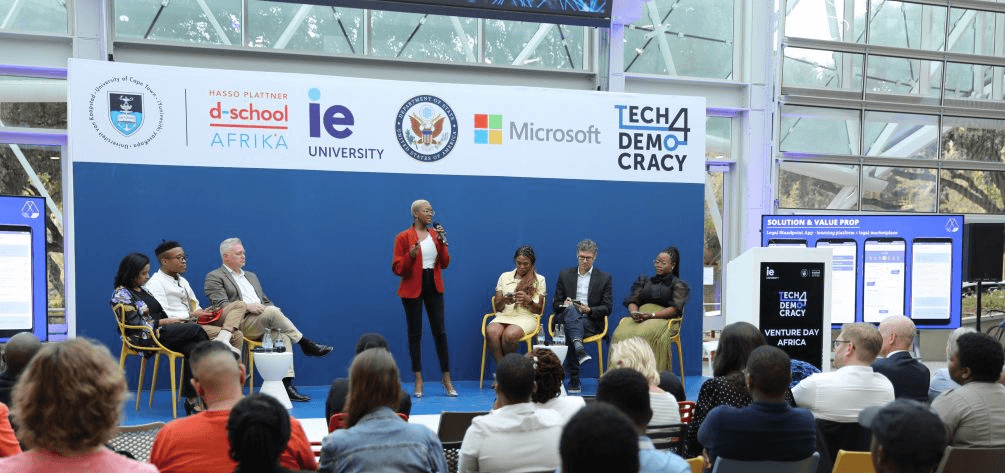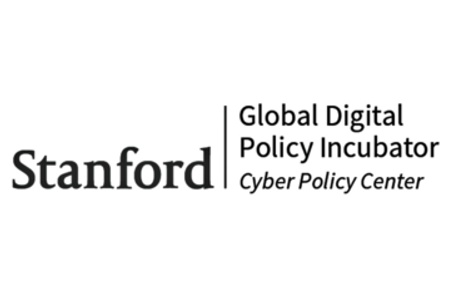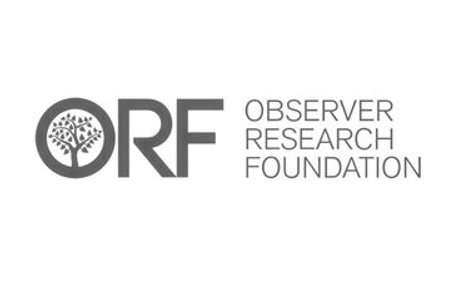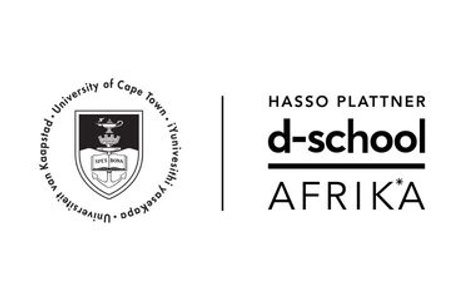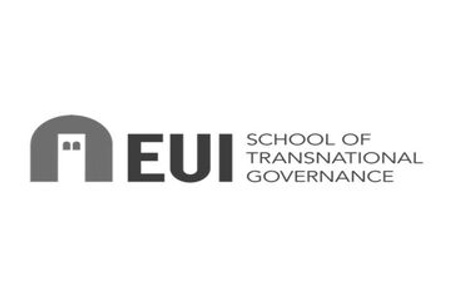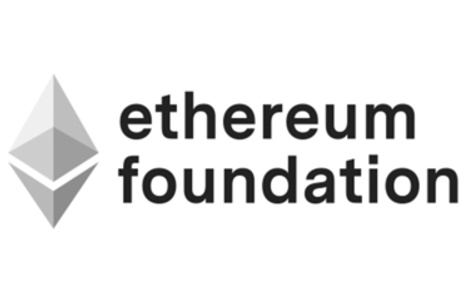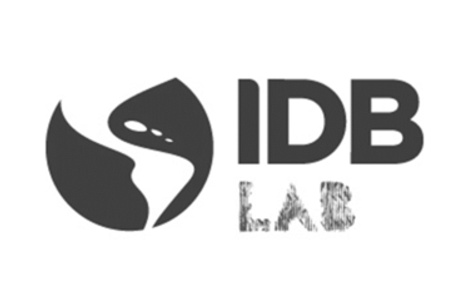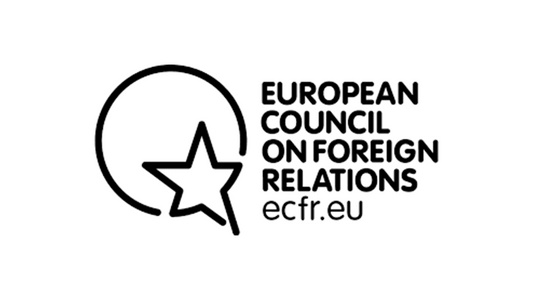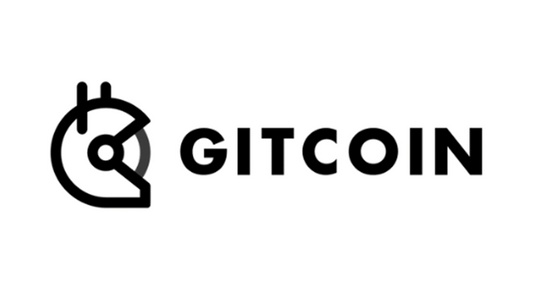INTRODUCTION
Tech4Democracy is a global initiative whose primary objective is to conduct groundbreaking research in the field of democracy-affirming technologies, while identifying and fostering entrepreneurs who are building them.
The initiative is led by IE University, in partnership with the U.S. Department of State and with the strategic support of Microsoft.
In this digital era, understanding the intersection of technology and democracy has never been more critical.
This research project dives deep into this crucial nexus, introducing the novel concept of Democracy-Affirming Technology, defined as technology that is intentionally crafted to actively uphold and encourage fundamental democratic values, principles, and rights, covering areas like privacy protection, liberty, inclusion, equitable access, and more.
As backbone of the project, IE University organized startup competitions (Venture Days) in the 5 continents to scout for the most promising innovations to advance democratic values in the fields of data for policymaking, fight against disinformation, digital identity and trust, CivTech or GovTech. More than 300 organizations from 68 countries participated in the Challenge.
This served as empiric basis for a research report developed by a group of international experts from partner organizations such as the European Council of Foreign Relations (ECFR), the Observer Research Foundation (ORF), the European University Institute (EUI) or the Munk School at the University of Toronto.
- Publications

The goal of Tech4Democracy is to raise awareness about why democracy matters in an age of absolute technological disruption. It is critical that we appreciate how emerging technologies have profound implications not only on prosperity, but also on the balances of power, the guiding principles of politics, the determinants of peace and security, and how we understand “humanity”.
Democracy-affirming technologies are intentionally designed, developed, and deployed to actively promote and uphold a set of fundamental values, principles, and rights. These essential components encompass the right to liberty and personal autonomy, the protection of privacy and private data, the principles of inclusion and equitable access, the dissemination of truthful information, the fostering of citizens’ tech critical thinking, the utilization of technology to enhance legislative bodies, participation in free elections, the separation of powers, the principle of legality, and the safeguarding the rule of law.
Exploring the rapidly evolving landscape of technology governance, the report highlights how technology has become the front line of geopolitical competition. It proposes a patchwork and nodalized governance approach as a counter to wider structures, illustrating the possible trajectory amidst escalating tensions between democracies and autocracies. It examines the diversity of regional perspectives in defining this governance, scrutinizing the role of various global entities and the dynamic between the ‘Global South’ and ‘Global North’. It also underscores the need to redefine digital rights globally and dilute a predominantly Eurocentric and Americentric view, while also investigating how digital technologies can enhance governmental transparency, political participation, and representation.
Shifting focus to “Deployment and Regulation of Technology to Ensure Rights,” the analysis delves into the critical role of data, truthful information, and tech literacy in fostering democracy, asserting the need for coexistence and mutual benefits between politics and technology, and reflects on the challenges of maintaining an informed public in an era of media fragmentation, polarization, and misinformation. The narrative then underscores the delicate balance between citizen rights and state surveillance, emphasizing the necessity for governments to comprehend their citizens’ needs for democratic service delivery. It concludes with the assertion that a new social contract is needed in an era of technologically empowered citizens, advocating for their voices to be heard through multiple platforms.
A standout feature of this report is the Tech4Democracy Radar, a tool developed using advanced Natural Language Processing (NLP), that conducts an in-depth analysis of the international startup ecosystem, exposing underutilized potential for supporting democracy and providing a detailed overview of patents in sixteen technology categories. The Radar’s findings underscore the most widely adopted technologies amongst the surveyed companies and exposes that technologies with a high volume of patents, such as social media interfaces, web/mobile interfaces, predictive analytics, and augmented reality, seem to dominate the scene. These insights suggest that many companies leverage mature technologies, customizing them to serve the democracy-related industry.
The report notes a prevalent disconnect between commercial technologies and democracy-affirming technologies, warning of potential democratic challenges. To remedy this, we propose an “Ethics by Design” approach, emphasizing the need for early integration of democratic values in the technology development phase. Additionally, the report stresses the importance of a well-informed public in this age of information overload, a cornerstone for solid democratic systems. Fulfilling this vision is key to Tech4Democracy’s two objectives: amplifying awareness about democracy’s importance and designing tech-enabled strategies to strengthen it.
RESEARCH CHAPTERS
RESEARCH CHAPTERS
- DEMOCRACY TODAY AND IN THE FUTURE
Jeremy Cliffe
The early years of the internet were marked by a profound optimism about the liberating and democratizing potential of new digital technologies as tools for greater human connection and civic interaction. Yet over the subsequent decades that optimism has curdled into a skepticism – often well-founded – about their impact as the scourges of disinformation, polarization and fragmentation have taken hold on political systems around the world. This chapter highlights what makes democracy-enhancing technologies essential: new applications of cutting-edge digital developments that once more harness these to the cause of open and pluralistic political systems.
- MAPPING DEMOCRACY-AFFIRMING TECHNOLOGIES WORLDWIDE
Darío García de Viedma and Alex Roche
Democracy-affirming technologies hold immense potential for bolstering democratic values and processes, but these technologies may not prioritize democratic values by design. This chapter addresses the misalignment between the democratic use cases of Tech4Democracy startups and the actual design of their technologies and explores the implications for democratic values and participation. Drawing on a methodology that combines a Tech Radar approach and NLP analysis of a worldwide patents database, this analysis investigates the current landscape of democracy-affirming technologies based on a Global Entrepreneurship Challenge organized by IE University.
- TECH DIPLOMACY AND TECH GOVERNANCE
Cathryn Clüver Ashbrook
With technology becoming the frontline of geopolitical competition and control, this chapter explores the emerging discussion on the shape of technological governance in the context of an accelerating rivalry between democracies and autocracies. This chapter briefly surveys the existing landscape and examines the possibility and pitfalls of creating a wider, democracy-led T-12/T-14 alliance structure as a coordination and governance model of the near-term future in technology policy terms. It concludes that instead of a linear march toward a wider governance structure, a patchwork of deepening and coordinating nodes on tech governance by and for democracies is more likely in the short-term, to facilitate practical alignment.
- THE EUROPEAN UNION: A FORCE FOR (DIGITAL) GOOD
José Ignacio Torreblanca
This chapter examines how the digitization of information and the emergence of social networks have resulted in the weakening of liberal democracies and, in parallel, the strengthening of authoritarian regimes. To counteract the ability of foreign actors to disseminate narratives that delegitimize democracy, it proposes that the European Union should lead a grand multilateral agreement that, in the manner of Bretton Woods, establishes the framework for a democratic governance of technology.
- RETHINKING DEMOCRATIC TECH GOVERNANCE IN THE EURO-ATLANTIC
Tyson Barker
The U.S. – and to a lesser extent, the EU – have undertaken two strategic shifts in their approach to democratic tech governance. The first is the shift away from classical treaty-based, trade-centered agreements to more flexible arrangements like the U.S-EU Trade and Technology Council (TTC), and the second is the shift in understanding of strategic technology access and control of the innovation industrial base as a source for geopolitical power. Taken together, they provide a broad diplomatic trajectory in digital technology. This chapter attempts to address how the U.S.-EU partnership is responding to these shifts and what it means for their joint efforts to support norms, technical standards, protocols, means of communications, international institutions, and ultimately international digital order.
- RE-BALANCING POWER TO ENSURE DIGITAL RIGHTS IN THE GLOBAL SOUTH
María Paz Canales
The policies involved in the development and deployment of technologies and the norms that guide them demonstrate the influence of geopolitical tensions on the lens of what constitutes roles in production, control, and benefit between the Global South and Global North stakeholders. This chapter calls attention to a few areas in technology policy that could benefit from new ways of engagement to re-balance the relationship between north and south and ensure the protection of digital rights across the globe. “Global South” here refers to any stakeholder coming from less developed countries, in majority, but not exclusively, located in the southern hemisphere.
- DIGITAL DEMOCRACY IN ASIA
Trisha Ray
A pain point preventing some Asian countries from participating actively in discussions shaping digital democracy is the Eurocentric, Americentric perspective on what the “correct” practice of democracy should be. This chapter conducts a review of literature on digital democracy from Asia, covering how digital technologies have improved government service delivery, enhanced transparency, enabled wider political participation, and provided spaces for underrepresented voices. It also finds nuance in how different Asian publics – including within the same country – are engaging with politics online, with its practice varying based on history, cultures, political systems, and communities. For instance, even with the focus on developing e-government infrastructure across Asia, not all communities experience these services in the same way, resulting in a ‘democratic divide’.
- THE TECHNOLOGICAL INFRASTRUCTURE OF DEMOCRACY
Daniel Innerarity
The relationship between technology and democracy is examined here from a fundamentally theoretical perspective in relation to the conceptual framework in which we should think about it. We cannot ask whether a technology is suitable for democracy if we do not address the kind of conditioning that technology exerts on humans, whether it is determinant, whether it is neutral, or whether it all depends on the use that is made of it. This chapter looks specifically at the case of algorithmic governance and asks about the desirability and feasibility of politicizing algorithmic decisions.
- THE ROLE OF AN INFORMED PUBLIC IN DEMOCRATIC SYSTEMS
D.J. Flynn
Democracy requires citizens who are able and willing to update their preferences in response to relevant information. In recent years, changes in the information environment brought on by new technologies have raised concerns about the quality of political information available to citizens. This chapter reviews recent research into three such changes — media fragmentation, social media, and fake news — and potentially negative consequences. While these developments certainly pose new challenges for democracy, the research reviewed here shows that conventional wisdom overstates and misunderstands their potential consequences. The chapter concludes with a discussion of policy responses by governments, social media platforms, and other actors.
- RIGHT TO TRUTH, RIGHT TO PRIVACY AND RIGHT TO KNOW
Marcin Kilanowski
The notions of truth, information, and privacy have been strongly challenged by the intensive development of new technologies. The information and data obtained by tech companies, political parties, and governments have become means for the development of disinformation and “fake news” in aid of the economic or political interests of these entities on the national or international ground. This essay addresses whether it is still possible to defend the idea of reaching for the truth and gaining information and knowledge while respecting the right to privacy and right to freedom in democratic societies. The positive answer includes a set of recommendations.
- IMPROVING POLITICAL REPRESENTATION THROUGH DATA
Peter Loewen
In this chapter, Loewen does three things. First, he provides context for some of the on-the-ground facts which outline the gap between what we want our politicians to know and what they can know. He then briefly reviews the kinds of data that could improve representation. He next discusses two broad areas of political representation and public policy making that could be materially improved by a greater engagement of data by politicians and public servants. He concludes by considering how various democratic values and practices not only make it possible for public servants and politicians to engage in more systematic learning, but also confer an advantage to democracies.
- THE NEED FOR A NEW SOCIAL CONTRACT
Elisabeth Braw
In this concluding chapter, Elisabeth Braw explains how he arrival of mobile phones, the internet and social media has, over the past three and half decades, established an entirely new way for citizens to interact with one another and society as a whole, and this digital revolution will further accelerate as artificial intelligence and the internet of things take on a larger role in daily life. Her analysis lays out the need for a new social contract suited to the digital age, and provides recommendations on how to create it.
GLOBAL ENTREPRENEURSHIP CHALLENGE
GLOBAL ENTREPRENEURSHIP CHALLENGE
Tech4Democracy conducted a Global Entrepreneurship Challenge to select promising innovators committed to fostering technology for social good through competitions (Venture Days) held on all five continents. Using this sample as a foundation, we built the initial framework for the category of democracy-affirming technologies.
RESEARCH TEAM
RESEARCH TEAM
ADVISORY BOARD
ADVISORY BOARD
In partnership with
In partnership with
In Collaboration with
In Collaboration with


